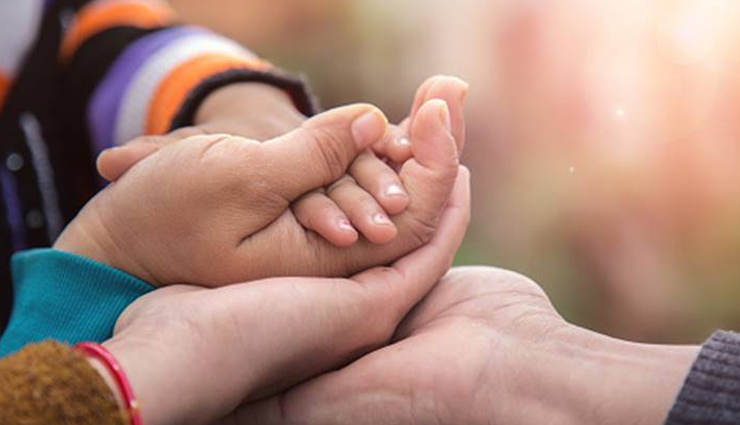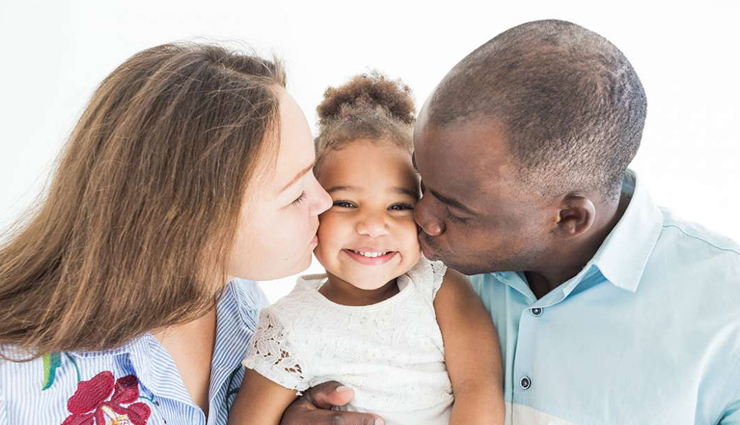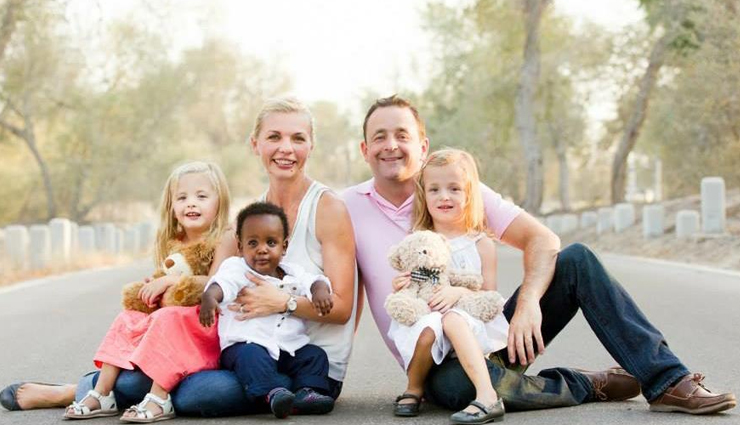- Home›
- Mates & Me›
- 7 Common Challenges You Might Face During Adoption
7 Common Challenges You Might Face During Adoption
By: Kratika Fri, 11 Sept 2020 4:31:35

So, you want to adopt a child. As noble as the thought is, it is a challenge, be under no illusions! There are hundreds of things to think of, and a few hundred more to do. It is a legal process, which establishes a familial relationship between an adopted child and the adoptive parents.
An adoption can be either closed or open. In a closed adoption, the birthparents and the adopter don’t know each other. An open adoption is where adoptive parents have at least some contact with the birthparents. While adopting a child is a joyous occasion for the whole family, it can lead to a multitude of challenges and problems, specific to your country’s law and unique to your family. Here, we look at some common adoption problems and challenges associated with it.
* Financial Challenges
The financial aspects of adoption will depend on the agency you choose for the process. If you choose a private adoption agency, you may have to pay more in terms of adoption fee and other expenses compared with any public agencies in your state/country. Prepare to pay more if you are adopting a child who is a foreign national.
Your financial expenses can increase if you are paying for the expenses of the birth mother’s hospital/medical bills. Your actual expenses will depend on your specific situation. You will also have to pay the fees of the attorney and any other miscellaneous expenses you might incur during the adoption process.

* Legal Challenges
It is extremely important that you know and understand all the legalities pertaining to child adoption in your country.
Make sure both birthparents know about the adoption, either open or closed. If the birth mother has agreed to give her child up for adoption without consulting with the birth father who hasn’t yet relinquished his rights to the child, you may experience a lot of legal hassles.
* Intercountry Adoption
With intercountry adoption, you may face different problems as such types of adoptions come under the legal preview of the child’s home country as well as the country of the adoptive parents.
You may need to know about the special visa requirements. You may also need to know the laws about international adoptions. For instance, citizens of USA, at present, are not permitted to adopt from certain countries like Fiji, Senegal, Rwanda and a few others.

* Health Challenges
Health challenges of adoption can be any medical problems with the adopted child.
In closed adoptions, it may not be possible to get all the information on the child’s health history. Even if it is an open adoption, the birth father may be absent and access to the child’s complete medical history may become difficult. This may later cause problems in the proper care of the child. As an adoptive parent, you may not able to assess the financial aspects of the child’s healthcare. This may also be true for international adoptions where you might not get the complete picture of the child’s health. This issue can bring many challenges . You may not be financially or emotionally ready to take care of an ill child or a child with some serious medical condition. Or you may not have access to funds needed for the child’s medical care. Some health problems with adoption may not be covered by your insurance. Perhaps due to your job or working situation you may not have the time to care for a child who requires constant medical attention or even money to hire a nurse for the child’s home care.
Adoptive parents also have a right to know if the child had any development delays due to birth mother’s alcohol/drug abuse during her pregnancy [8]. Other concerns can be about any neglect the child may have suffered during his early years or about his inherited illnesses. Not able to get such information can become problematic for adoptive parents.
* Emotional Challenges:
Adoption presents many emotional challenges for the child, adoptive parents and family and the birth parents as well.
The adopted child may not be able to adjust with your family and vice versa. This can often happen when you adopt an older child.
You may realize that you are not able to handle the unique parenting challenges of an adopted child.
In case of closed adoptions, the birth mother or birth parents have no contact with their child or the adopted family. This may be emotionally testing for them.
The same can present challenges for the child as he grows older and becomes curious about his birth parents and his sense of identity. It can be very challenging for adopted children to have no access or idea about a big part of their lives. Such problems can affect the whole family. First, the child may be in distress and it may sadden the whole family. Second, these identity issues can manifest as psychological problems such as depression, eating disorders, low self-esteem and others. The child may often wonder about the reasons his birth parents gave him away for adoption. Not knowing the answer to this question alone can be emotionally stressful for the child.
Open adoption can also have challenges as the adopted child may feel torn between his two set of parents. More so, if the birth parents try to excessively bond with the child or begin to think that giving the child for adoption was a mistake.

* Cultural Challenges
If your adopted child is from a different cultural background to your own, it can pose some challenges for the child and the adopted family.
This is often seen in cases of international adoptions. Your birth children may find it difficult to adjust to your adopted child’s ethnic background and vice versa. The adopted child may experience identity loss as he grows up.
* Ethical Challenges
Adoption can also lead to ethical challenges.
The adoption agency may have violated the rights of the birth parents.
The adoption agency may decide to hide some crucial background or health issue from the adoptive parents.
In international adoption, the child may have been a victim of trafficking.
The adoptive parents may choose to hide information about the birth parents from the child. It helps to understand more about the adoption challenges that the adoptive parents has to pass through.





